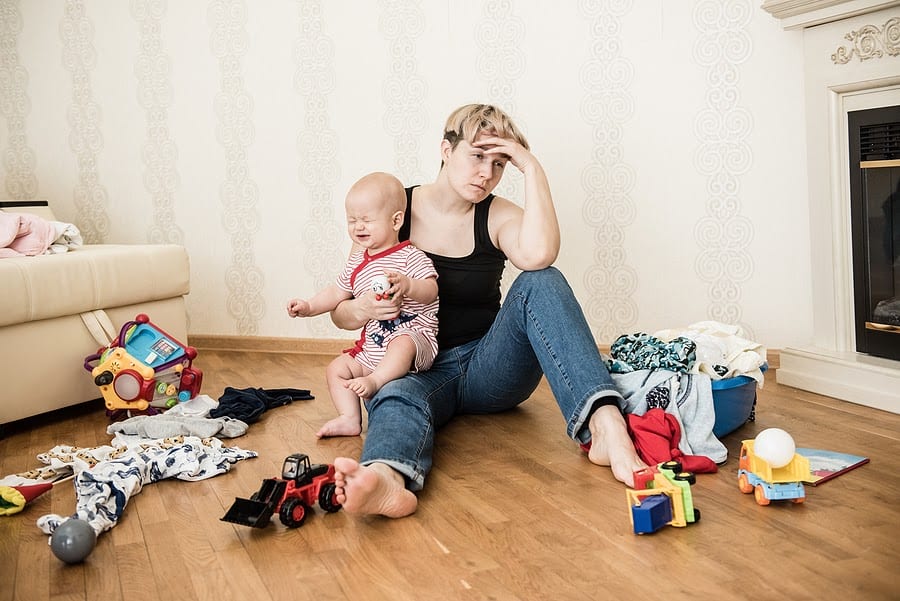Everyone expects having a baby to be a joyous time for a growing family, but that isn’t always the case. In fact, anywhere from 50-85% of women experience baby blues after giving birth, and 7-8% of women develop Postpartum Depression, otherwise known as PPD. Bringing home a newborn often means less sleep while also taking on more responsibility. It’s no wonder so many women experience the baby blues during this time with symptoms including mood swings, irritability, insomnia, and anxiousness.
While it’s normal to experience these feelings after coming home with a newborn, these symptoms should not be taken lightly if they persist for more than two weeks. Women who experience persistent feelings of sadness, intense anxiety and obsessions, loss of interest, feelings of inadequacy, and suicidal thoughts could be experiencing PPD and should consult with their doctor.
If your loved one is struggling with Postpartum Depression, there are things you can do to help.
Remind Her That She Matters Too
It’s an exciting time when your friend or family member brings their baby home; however, it’s important to realize that if they’re struggling with PPD, they may not be as excited as you about the baby’s every move and gesture. Whether you’re loved one is outwardly expressing that they are struggling or not, it’s important to remind them that they matter too. It’s okay to ask how the baby is doing, but also remember to ask her how she’s holding up as well.
Making time to stop over and visit or spending time talking on the phone can go a long way. During your conversations, it’s important to allow her to talk about her feelings. Don’t dominate the conversation. Instead, make this a time where she knows she can safely open up and talk about whatever is bothering her or on her mind.
Don’t Ask, Just Do It
We all have good intentions when we tell a friend or loved one that if they need anything, just ask; however, this hardly ever materializes into any real help. Instead of asking what she needs help with, just do it. Cook a warm meal, show up and help with the laundry and dishes, or volunteer to watch the baby so she can shower or take a nap. Simply showing up and taking action can lift a huge burden off of your loved one’s shoulders.
Help Her Feel Supported
Suffering from depression and anxiety is never easy. It’s important to encourage her without dismissing her. You may already know not to say things such as “snap out of it,” but it’s also important not to negate her negative feelings as well. If she confides in you that she feels she’s doing a terrible job, don’t dismiss her by saying what a great job she’s doing. Instead, validate her. Say that you understand that must be really tough.
There is only so much you can do for the person you love suffering from PPD, whether they are your wife, best friend, or sister. Sometimes the best support they can receive is from others who feel the same way. Do some research and find a local support group that she may be able to join or participate in.
Don’t Forget to Take Care of Yourself Too
We all want to help our loved one succeed, but providing continual emotional support to another person can be exhausting. Keep in mind that you can’t fill from an empty cup and to take care of yourself as well. Take time to do the things that recharge you whether it’s a bath, a gym session, spending time with other friends, or spending time doing a hobby you enjoy.
It’s also important to keep in mind that the loved one you are helping out should not be gifted with the burden of your exhaustion. Do not tell them that you are up all night worrying about them. Instead, find other sources to confide in while you are helping your loved one get through their Postpartum Depression.
If you or a loved one is experiencing Postpartum Depression, it’s important to seek help. Schedule an appointment to talk to your doctor today and find out what options are available.







